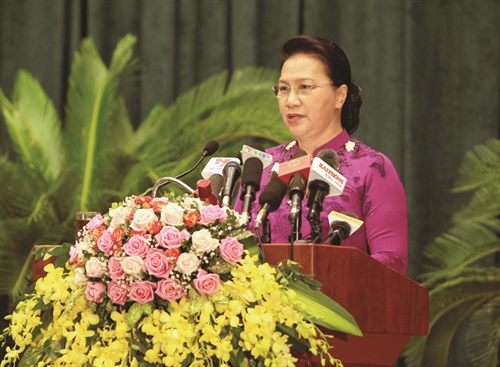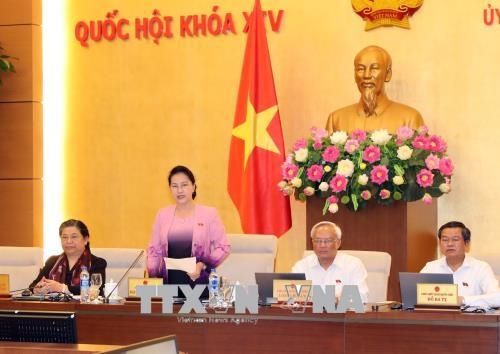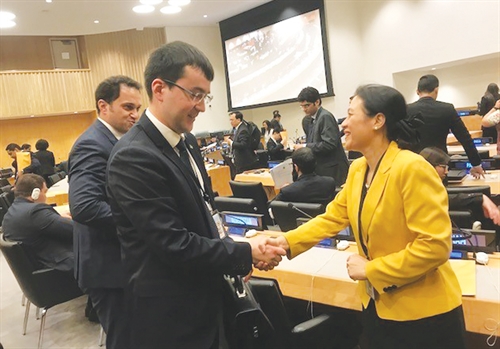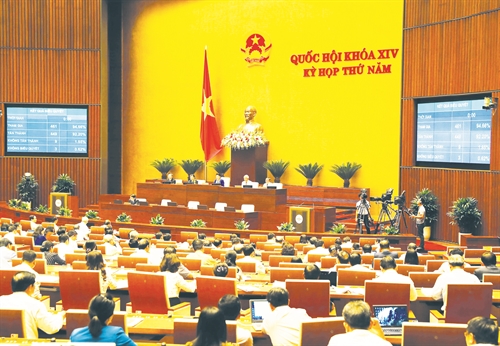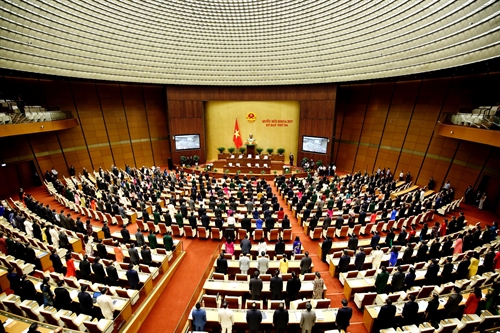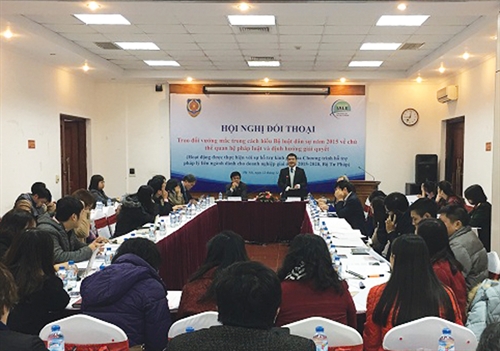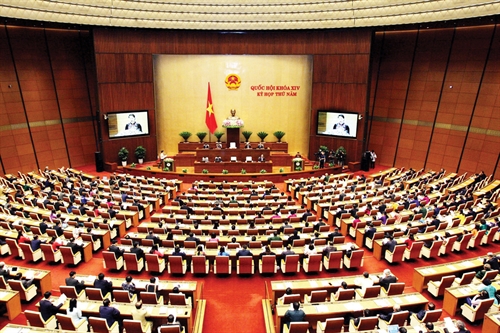Nguyen Hong Hai
Deputy General Director
Department of Civil-Economic Laws, Ministry of Justice
Legal nature of limitation periods
Private law regulates the legal status of subjects involved in private relations (the subjects)[1] and their personal and property rights and obligations; standards of legal behaviors in civil transactions; and legal mechanisms for recognition, exercise and protection of civil rights. If their rights are infringed upon, the subjects may have such rights protected in a variety of ways[2], including exercising the law-established right to request the court to settle civil cases or matters (the right to request) in order to ensure justice in the recognition, exercise and protection of civil rights. That is why the right to request is an inevitable part of the civil rights which the subjects exercise at their own will, and their non-exercise of this right does not constitute a basis for termination of this right.
However, with a view to enhancing the responsibility of the subjects in exercising and protecting their civil rights, reducing complications in settling disputes, and guaranteeing the stability of relevant social relations, the law may set certain restrictions on exercise of the right to request. In many cases, the subjects must exercise this right within the law-prescribed time limit, which is called the limitation period for requesting settlement of civil cases and matters (the limitation period for request)[3].
Therefore, the limitation period for request is in legal nature a restriction on the exercise of a civil right (the right to request). It constitutes part of private relations and is regulated by the private law[4]. The limitation period for request has two basic characteristics below:
First, it is prescribed by the law, objective, and independent from the will of the subjects. The subjects’ non-exercise the right to request within the law-prescribed period may give rise to legal consequences beyond their will, e.g., the obligee may lose the right to request or the obligor may be waived from his obligations toward the obligee[5];
Second, it is one of legal tools created by lawmakers for the subjects to resort to (possibly) in the recognition, exercise and protection of their civil rights. The exercise of the right to request and application of the limitation period for request are independent from the proceedings carried out by the court in accepting and settling requests of the subjects. The court itself may not arbitrarily invoke the limitation period for request to reject civil cases or matters[6].
Regulations on the limitation period for request prior to 2017[7]
In this period, the limitation period for request was stipulated not only in the 2005 Civil Code but also in legal documents on civil affairs[8] and legal documents on legal proceedings[9]. Basically, under these documents, the limitation period for request was considered an institution of civil law, which was a law-prescribed time limit for the subjects to exercise the right to request the court to recognize and protect their civil rights[10]. However, this approach was applied inconsistently. The civil procedure law and the practice of legal proceedings of the court in this period regarded the limitation period for request as an institution of civil procedure law, namely the limitation period for carrying out legal proceedings upon the expiration of which the court may refuse to receive civil cases or matters for settlement, regardless of the will of the subjects[11].
The above inconsistency gave rise to theoretical and practical problems as analyzed below[12]:
(i) The idea that the limitation period for request can be invoked by the court to refuse to settle civil cases or matters runs counter to the legal institutions of a market economy and international practices, according to which the law and court are responsible for ensuring justice in the conduct and the protection of the rights of the subjects. Thus, the court is not allowed to invoke the expiration of the limitation period for request as a basis for refusing to settle a case or matter unless it is requested by the subjects;
(ii) Since the law basically sees the limitation period for request as a time limit for the subjects to exercise their rights in legal proceedings, in case the subjects exercise their rights after the prescribed time limit, the law almost only pays attention to procedural consequences (i.e., the involved parties lose the right to request or the court stops settling the case or matter) but not to consequences related to the contents of civil relations[13]. This is possibly one of the causes of growing complication of civil transactions and the failure to ensure stability of related social relations, especially ownership, contract and inheritance ones[14];
(iii) The correct identification of the starting point of time for counting the limitation period for request is very important to ensure justice for the subjects and effectiveness of the recognition and protection of civil rights. However, this point of time was rigidly set under Vietnam’s law during this period based on a sole event or ground. For instance, the limitation period based on which the court declares a transaction null and void “shall be counted from the time such transaction is established” regardless of whether the subjects know or must know that their rights and interests are infringed upon, whether the violation has occurred and is still occurring or what benefits they gain from the transaction, etc.[15] This rigid provision could help the court easily determine the limitation period but fails to truly reflect the nature and reality of civil relations and, in many cases, causes injustice to the subjects having their rights and interests infringed upon or the parties to the transactions[16];
(iv) In exercising the right to request in relation to ownership, the law still acknowledges the inequality between the State and other subjects in private relations, stipulating that the limitation period is not applicable to requests for refund of state-owned property. Regarding requests for refund of property owned by other subjects, the law lacks a clear policy on the application of the limitation period[17].
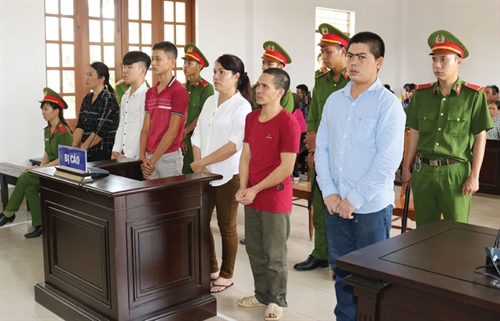 |
| Persons accused of causing social disturbance in Ninh Thuan province’s Phan Rang-Thap Cham city on June 10-11 at the court hearing held on August 22__Photo: Nguyen Huy Thanh/VNA |
The limitation period for request under the 2015 Civil Code and Civil Procedure Code
Compared to the previous period, the provisions on the limitation period for request of the 2015 Civil Code and the 2015 CPC have been remarkably reformed based on the legal philosophy that they must respect and protect civil rights and market relations, and conform to international customs and practices; the regulation of private relations must guarantee the two most basic values of a market-economy society, that is equality of subjects, and freedom and voluntariness. The State and state agencies are equal with other subjects in private relations; the State’s interference in private relations must be minimized; and the exercise of the people’s rights to make civil requests and access justice must be guaranteed[18].
Specifically as follows[19]:
First, lawmakers have consistently stuck to a consistent approach that regards the right to request and limitation period as part of civil rights regulated by private law[20]. The Civil Code prescribes legal consequences related to civil rights in some cases where the subjects with the right to request fail to exercise this right after the expiration of the limitation period, e.g., the case of expiration of the limitation period for requesting the court to declare transactions null and void or expiration of the limitation period for division of inheritances. In civil proceedings, the CPC states that the limitation period for request must be applied in accordance with the Civil Code and adds no limitation period for request to be applied by the court to the settlement of civil cases and matters when this period is not provided in the Civil Code and relevant laws[21].
Second, the court is not allowed to rely on the provisions on the limitation period for request in order to refuse a civil case or matter but may only apply them when it is requested by one or more of the parties before the first-instance court issues a judgment or decision to settle the case or matter. The subject that will benefit from the application of the limitation period has the right to reject such application, unless such rejection aims to shirk the performance of his obligations[22]. On the basis of the provisions of the Civil Code and CPC, to secure the exercise of the subjects’ right to request, the Judicial Council of the Supreme People’s Court has issued guidelines that from January 1, 2012 (the effective date of the Law revising the 2004 CPC), if the court rejects a petition for the reason that the limitation period for initiating lawsuits and the time limit for settling complaints about the rejection of petitions have expired but the involved parties file a new lawsuit, the court must consider accepting the case according to general procedures[23].
According to the Government[24], the above reforms conform to the legal nature of the limitation period, creating a better legal tool for the subjects to protect their civil rights. The previous provisions on the limitation period for request helped the court settle civil cases or matters or issue decisions to stop settling civil cases or matters without having to make specific rulings for determining the interests and obligations of the parties, but did not guarantee a thorough settlement of disputes. Moreover, when their interests are not protected by the State, the subjects would be likely to have illegal behaviors causing social disorder and insecurity.
The new approach also helps reduce cases in which the court relies on the limitation period to reject a request for settlement of cases or matters, conforming to the 2013 Constitution’s provision that “People’s courts are tasked to protect justice, human rights, citizens’ rights, the socialist regime, interests of the State, and lawful rights and interests of organizations and individuals.”[25]
Third, taking into account the principle that all individuals and legal persons are equal, and the State and state agencies at all levels are equal with other subjects in civil relations and must assume civil liability as prescribed in the civil legislation[26], the 2015 Civil Code’s provisions on the application of the limitation period for request have ensured such equality and created no privileges for the State and state agencies in civil relations.[27]
Limitation periods in specific cases
Limitation period for declaring civil transactions null and void[28]
For transactions absolutely null and void (due to violations of prohibitory provisions of law or breach of social morality or falsity[29]), this period is unlimited.
For transactions partially null and void (due to non-compliance with regulations on capacity of parties, voluntariness or forms of transaction)[30], this period is two years starting from a date that is determined flexibly based on the nature of transactions or violations or the will of the transaction parties. These transactions and applicable limitation periods are listed below:
- Transactions established by persons with inappropriate act capacity: The two-year limitation period will be counted from the date when representatives of minors, persons having lost their civil act capacity, persons having difficulty in perceiving and controlling acts, or persons having a limited civil act capacity know or should have known that the represented persons establish and perform the transactions by themselves;
- Transactions null and void due to mistakes or deception: The two-year limitation period will be counted from the date when the persons suffering such mistakes or deception know or should have known that the transactions are established due to mistakes or deception;
- Transactions null and void due to threat or coercion: The above limitation period will be counted from the date when persons committing threatening or coercing acts terminate such acts;
- Transactions null and void due to the transaction-establishing persons’ inability to perceive and control their acts: The limitation period will be counted from the date they are established;
- Transactions null and void due to non-compliance with prescribed forms: The limitation period will be counted from the date they are established.
Ownership-related limitation period
In principle, ownership is an absolute right and no one may be illegally restricted in or deprived of this right and other rights over property[31]. On that basis, the 2015 Civil Code provides no limitation period for initiating a lawsuit to request protection of ownership, and settlement of disputes over land use rights under the Land Law[32].
Yet, for the purpose of protecting national and public interests and lawful interests of other entities as well as ensuring the stability of relevant civil relations, lawmakers still set a limitation period for requests related to ownership in certain cases.
For instance, according to the Civil Code, a person who has bona fide possessed or benefitted from property without a legal ground but in an overt and continuous manner for 10 years, if such property is movable, or 30 years, if it is immovable, will become the owner of such property from the time of commencement of its possession[33]. Another case is that after six months from the date the capturer of an animal makes a public announcement, or one year, for an animal raised free range, if no one comes to reclaim the animal, such animal and its offspring born during the period it is cared for by the capturer will belong to him or her[34].
Limitation period for requesting protection of personal rights[35]
The 2015 Civil Code basically inherits its 2005 version’s provisions on non-application of the limitation period for requesting protection of personal rights. However, unlike the 2005 Civil Code, the new code classifies personal rights into personal rights associated with and not associated with property. Accordingly, no limitation period will be applied only to requests for protection of personal rights not associated with property. The protection of personal rights associated with property will be subject to a limitation period for request for such protection corresponding to the dispute-involving relation[36]. For instance, a request for compensation for damage which is caused due to infringement upon a person’s honor, dignity or prestige is subject to a limitation period applicable to lawsuits filed to claim compensation for non-contractual damage.
Limitation periods for initiating contract-related lawsuits and claiming compensation[37]
The limitation period for initiating a lawsuit to request the court to settle contract-related disputes or for reclaiming compensation is three years[38]. However, unlike the 2005 Civil Code, which stipulates that the limitation period for request will be counted from the date when the lawful rights and interests are infringed upon, the 2015 Civil Code says that this period shall be counted from the date when the person having the right to request knows or should have known that his lawful rights and interests are infringed upon[39].
Limitation period for requesting division of inheritances[40]
Unlike the 2005 Civil Code which sets a 10-year limitation period for requesting division of inheritances counting from the time of opening inheritance, the 2015 version prescribes this period depending on the type of inheritances, which is 30 years from the time of opening inheritance, for immovable property, or 10 years, for movable property. The Code also specifies consequences of the expiration of this limitation period, allowing the person currently possessing inheritances at the time of expiration of the limitation period for request to own the inheritances. Specifically, if the limitation period for requesting division of an inheritance expires, such inheritance will belong to the heir currently managing it. If such heir is unavailable, the inheritance will belong to the person currently possessing it under Article 236 of the Civil Code; if this person is also unavailable, the inheritance will belong to the State.
Transitional provisions
The 2015 Civil Code states that its provisions on limitation periods apply also to relations established before the date it takes effect (January 1, 2017), unless such period was already applied for making protests according to cassation or review procedures for the cases the court has settled under the civil law before the effective date of the 2015 Civil Code[41]. Concerning this issue, the Judicial Council of the Supreme People’s Court has issued guidelines saying that in case the court has rejected a petition for the reason that the limitation period for initiating lawsuits and the time limit for settling complaints about the rejection of the petition have expired, but the involved parties initiate another lawsuit against such case, the court may consider accepting the case according to general procedures[42].-
| References: 1. Ministry of Justice Report 151/BC-BTP of July 15, 2013, reviewing the implementation of the 2005 Civil Code. 2. Government Report 390/TTr-CP of October 12, 2014, on the revised draft Civil Code, submitted to the National Assembly. 3. Resolution 04/2017/NQ-HDTP of May 5, 2017, of the Judicial Council of the Supreme People’s Court, guiding the provisions of Clauses 1 and 2, Article 192 of the 2015 Civil Code regarding rejection of petitions and the right to file petitions for re-initiating cases. 4. Duong Tan Thanh, Limitation period for initiating civil cases, on tapchitoaan.vn. 5. Dang Thanh Hoa, Discussions about non-application of the limitation period for requests for protection of ownership, on tapchitoaan.vn. 6. Nguyen Hong Hai, Debatable issues on the limitation period for requesting settlement of civil cases and matters, presented at the “Workshop on the Law revising a number of articles of the 2004 Civil Procedure Code”, National Assembly’s Committee for Judicial Affairs, 2010. 7. Nguyen Hong Hai, Suggestions about researches into revising the Civil Code of Vietnam, presented at the “Workshop on legal forms in ASEAN emerging economies - a historical perspective and challenges for the future”, and the Week lecturing the civil laws of Asia, October 2017 at Kobe University, Japan. 8. Tran Anh Tuan, Limitation periods for civil affairs - from historical and comparative aspects, Toa an Nhan dan (People’s Court) journal, issue No. 11, June 2011. 9. Vinh Son, Discussions about the application of the limitation period for initiating lawsuits and limitation period for request under the 2015 Civil Procedure Code and the 2015 Civil Code, on toaan.gov.vn. |
